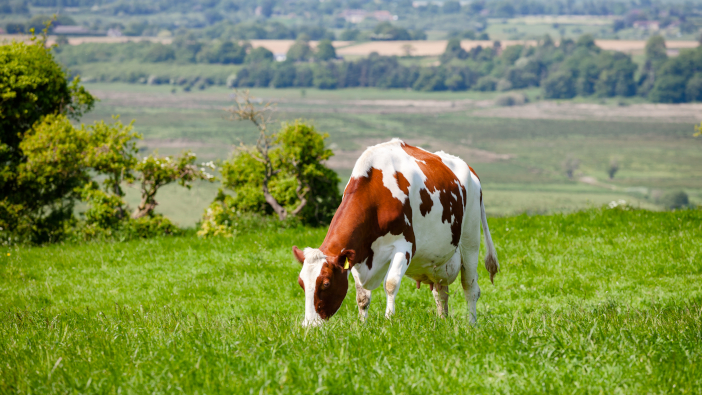The UK government has launched a nationwide call for evidence from the agricultural industry, scientists and the wider public on the use of new types of animal feed that can reportedly reduce methane emissions.
Ruminant livestock are one of the leading causes of farm greenhouse gases, however, feedstocks with methane inhibiting properties have shown potential, especially in housed cattle. These products include ingredients such as seaweed, essential oils, organic acids, probiotics and antimicrobials.
The consultation is been held in agreement with Northern Ireland, Scotland and Wales and will seek to find out how agri-businesses can increase the use of these feedstocks. It will consider the current use of feed additives and the potential barriers that could prevent the introduction of methane-suppressing feed.
Agriculture accounted for just 10% of all UK greenhouse gas emissions, with methane accounting for 54% of this. As of 2020, the total greenhouse gas emissions from agriculture had reduced by 16% when compared to 1990. Government statistics suggest that each litre of milk produced now produces 21% fewer emissions, while farmers are now producing 11% more milk with 24% fewer cows.
Farming Minister, Victoria Prentis said: “We’ve set out ambitious targets to achieve net-zero greenhouse gas emissions by 2050 and it’s right to consider how we can help farmers produce food sustainably and reduce emissions from agriculture further.
“Well-managed livestock can provide various environmental benefits and meat and dairy can both be an important part of a balanced diet. Through this call for evidence, we’ll better understand the promising role emerging feed additive technologies for cattle could play and how government can help drive its development.”
Minister for Rural Affairs Lesley Griffiths said: “We need to develop a resilient and prosperous agriculture sector which reduces its carbon emissions and greenhouse gases through a range of approaches including the possibility of adoption of important technologies. We want to work with our farmers and industry to achieve this and I encourage everyone involved in the industry in Wales to respond to the call for evidence.”
Scotland’s Cabinet Secretary for Rural Affairs and Islands, Mairi Gougeon, said: “The Scottish Government has ambitious climate change targets and, to meet them, agriculture in Scotland needs to reduce its emissions by 31% from 2019 levels by 2032. Methane is a potent greenhouse gas and therefore methane reducing feed additives have the potential to be a crucial part of the solutions that the agriculture sector needs to deploy toward achieving our climate ambitions.
“That is why I welcome this four nations effort to improve our understanding of the use of this innovative new technology in the sector, which will inform each government’s approach to future policy-making in this area. I would encourage the Scottish farming community to respond to the call for evidence and make their views known.”
Agriculture, Environment and Rural Affairs Minister Edwin Poots MLA said: “Following my consultation on future agricultural policy for Northern Ireland earlier this year, I announced that the use of feed additives to reduce enteric methane emissions, nitrogen and phosphorus outputs would be progressed by collaborative industry research. This UK-wide call for evidence will provide further guidance to guide us along the path to reduced methane emissions from our livestock industry.”
The call for evidence will close on the 15th of November


